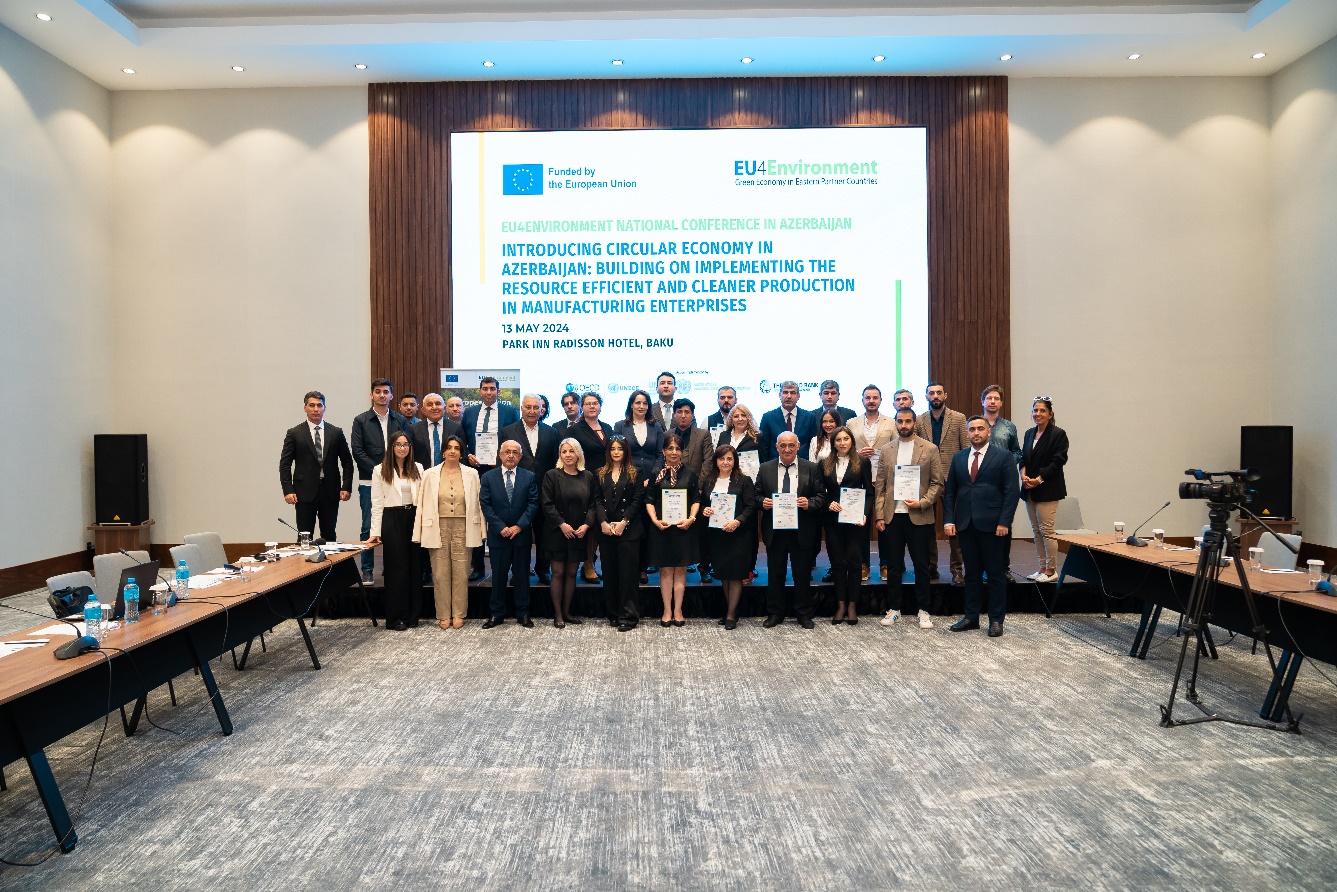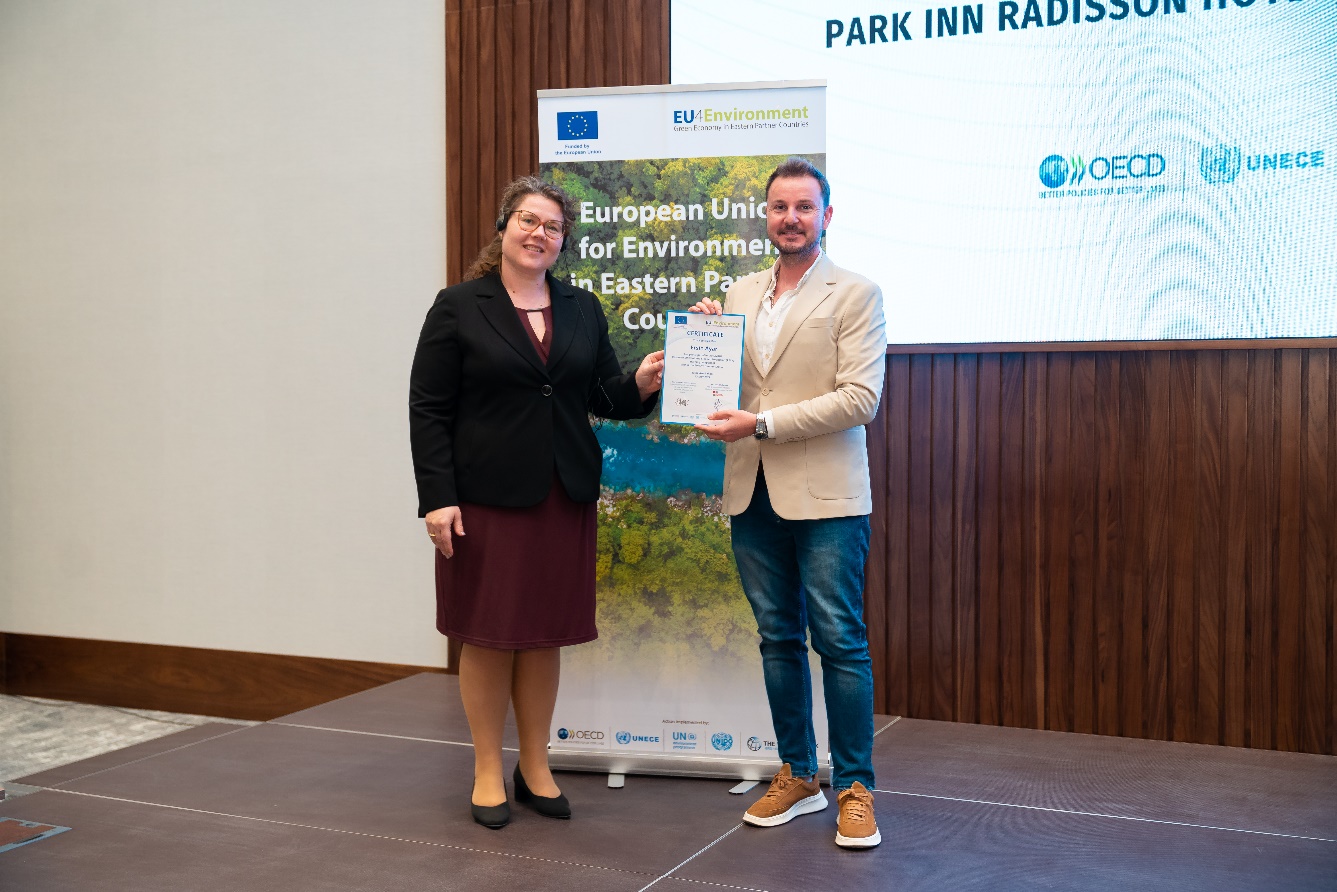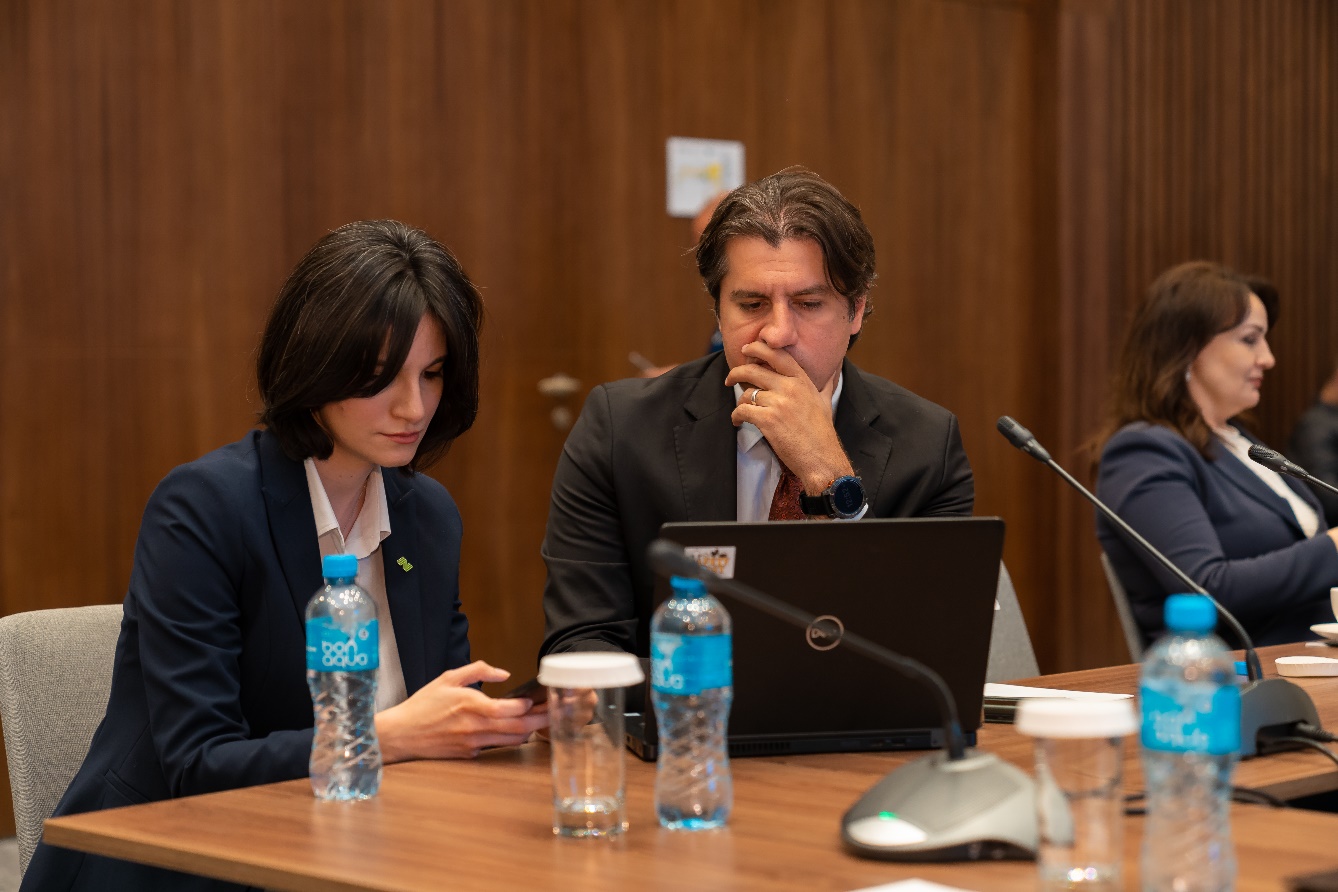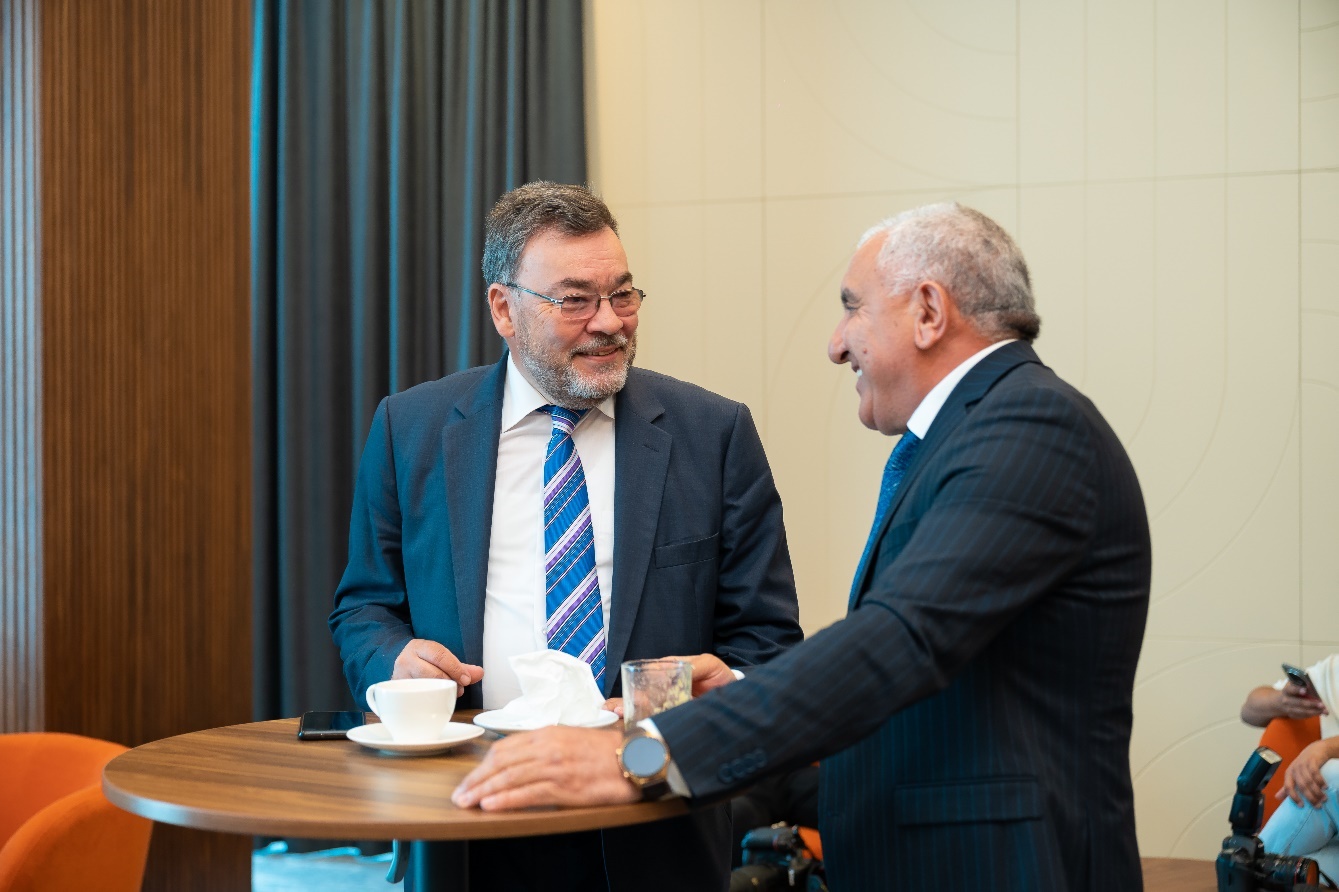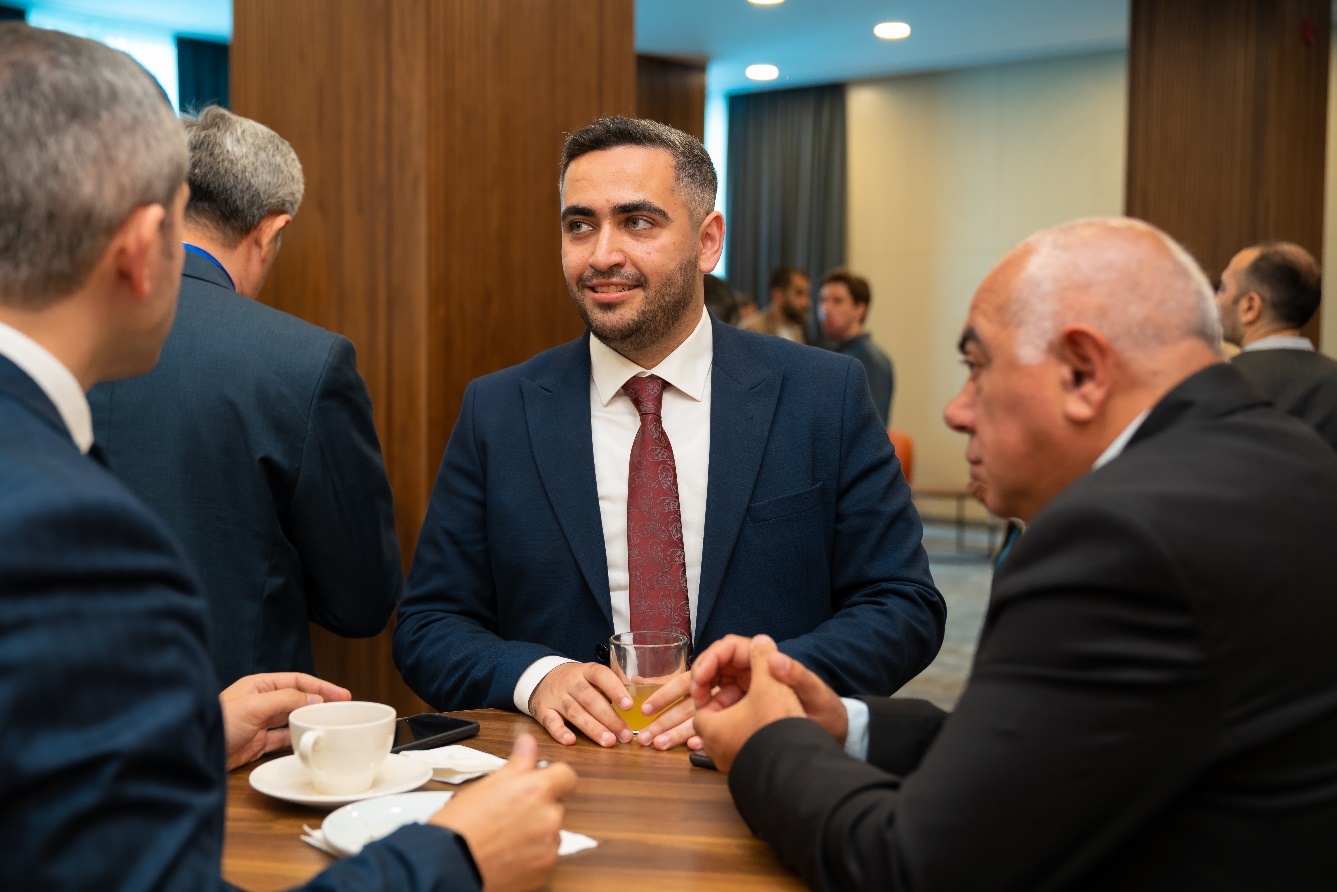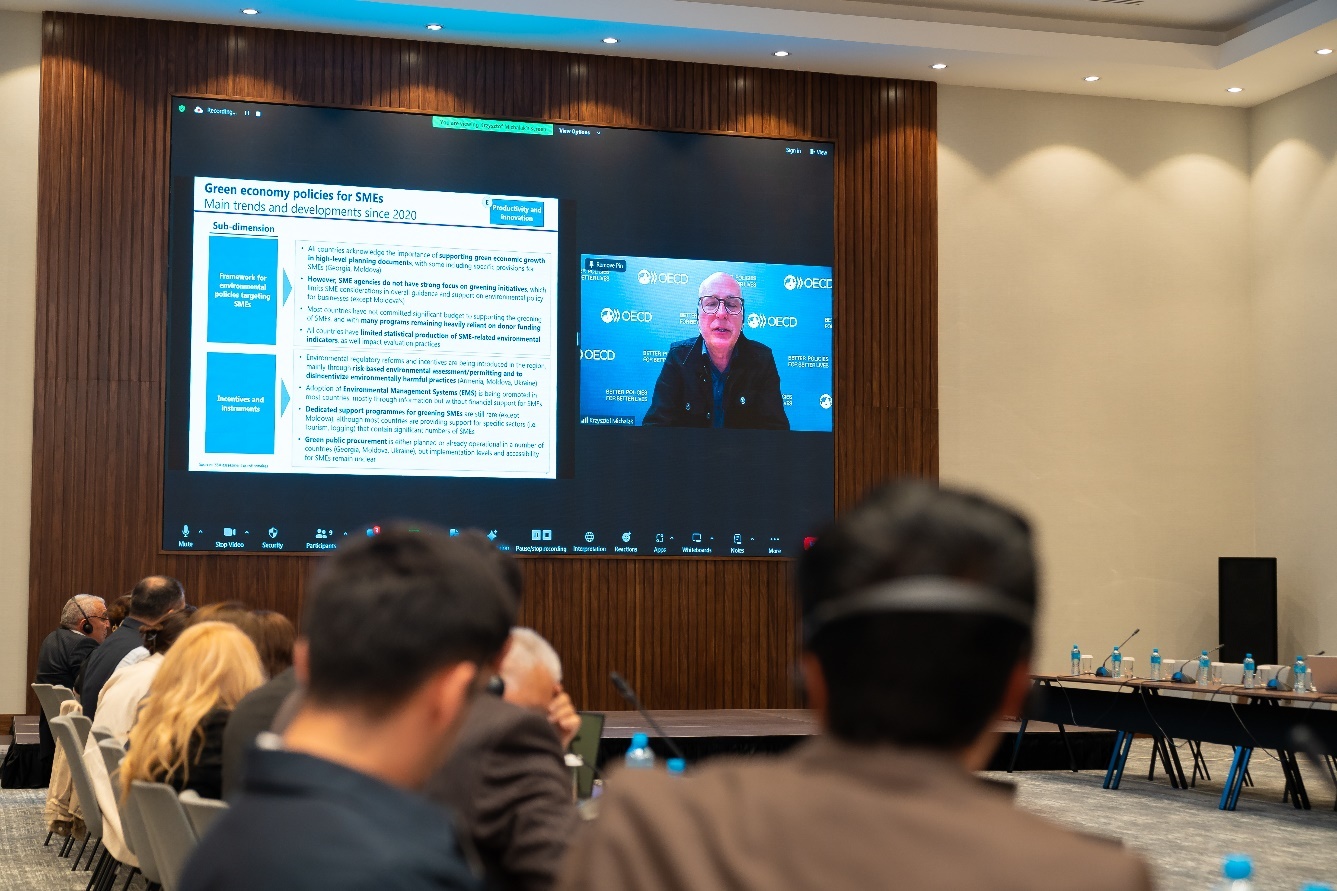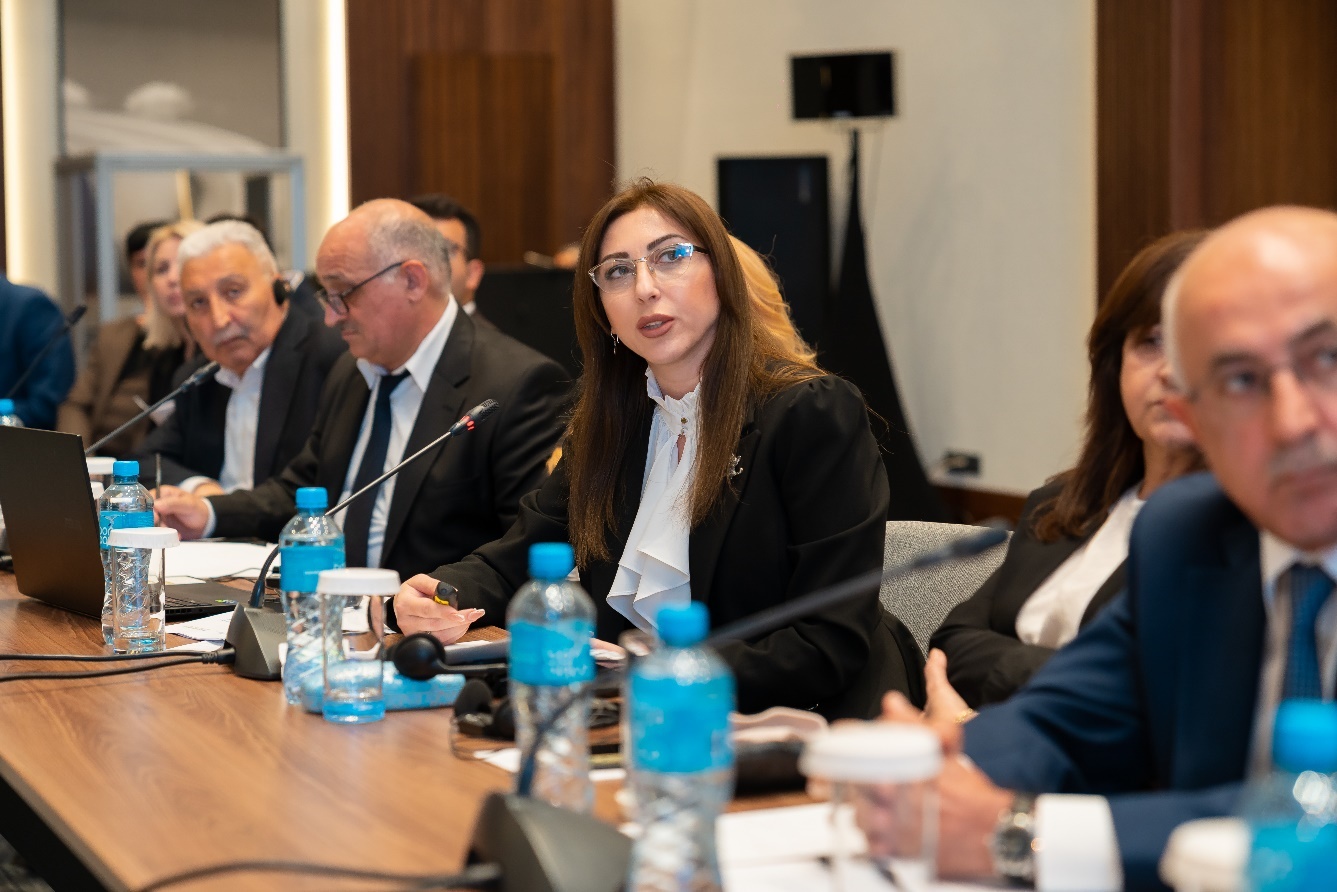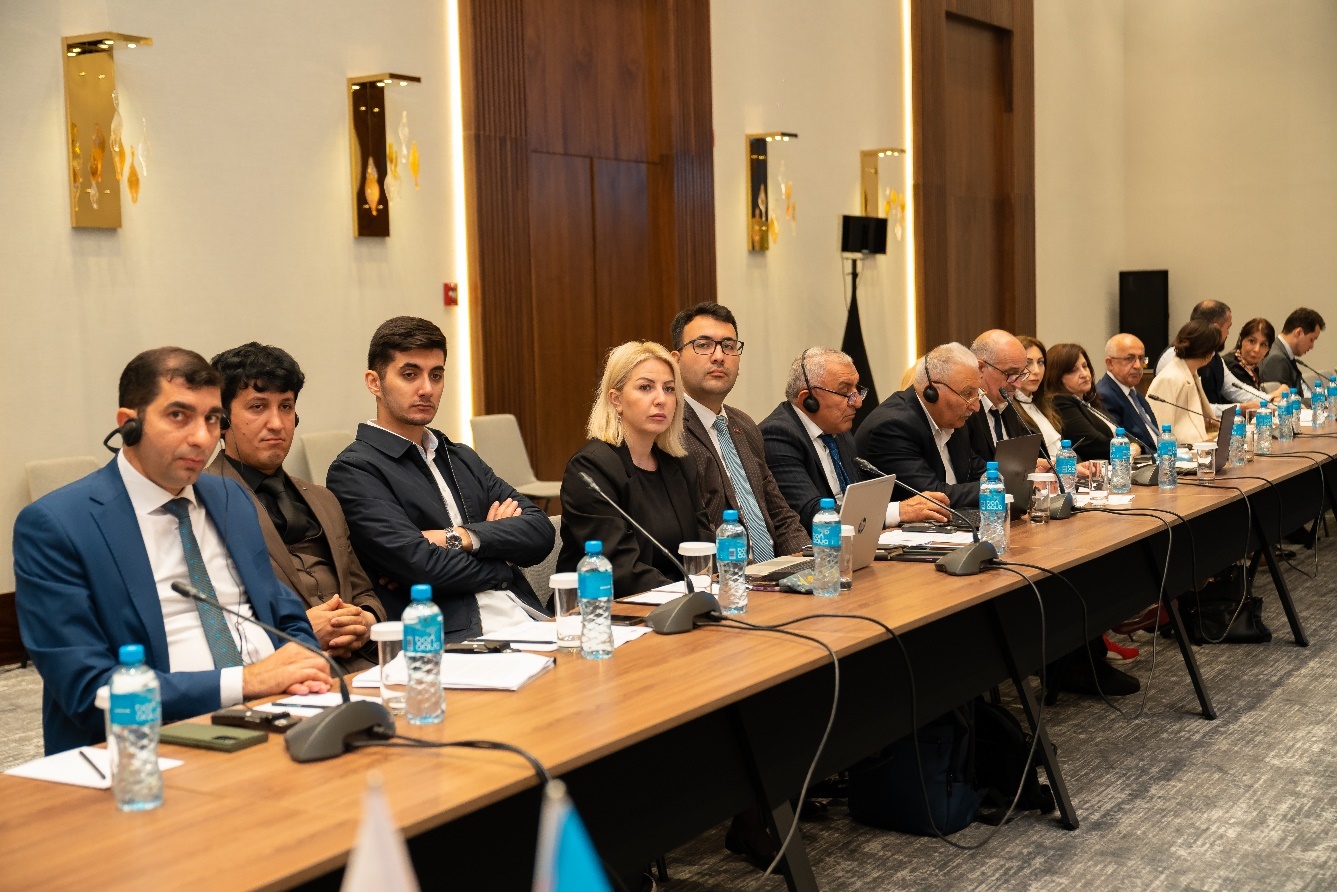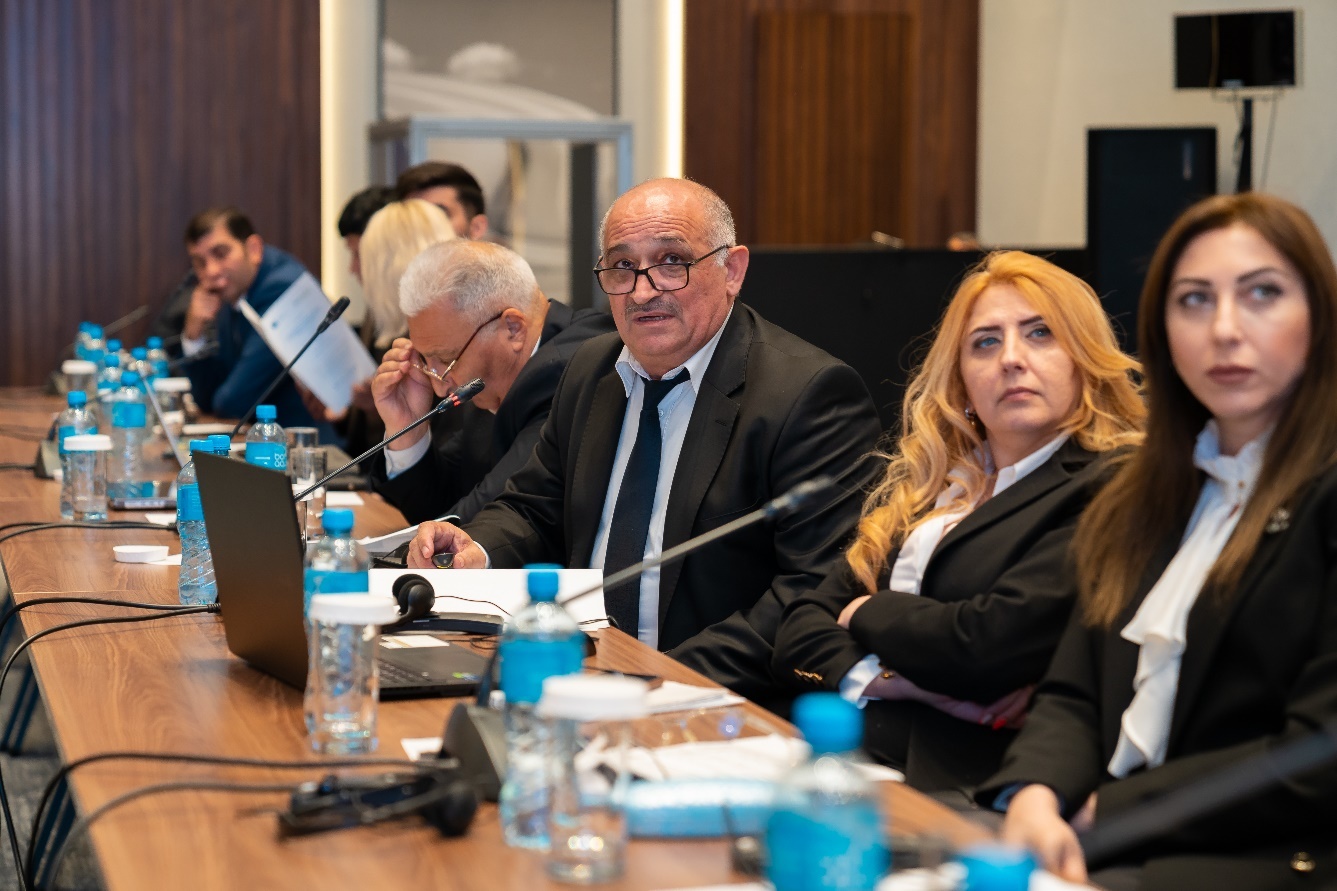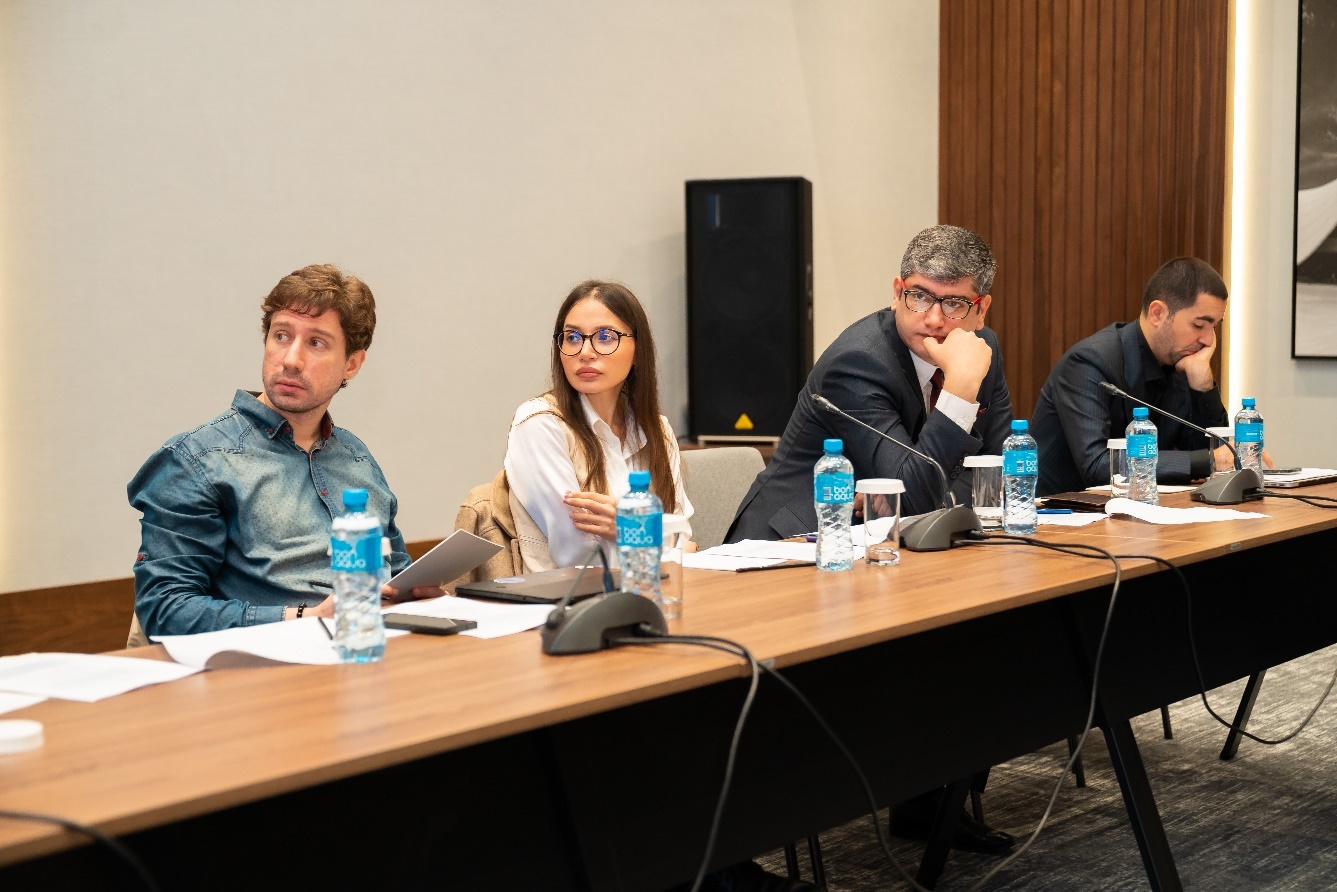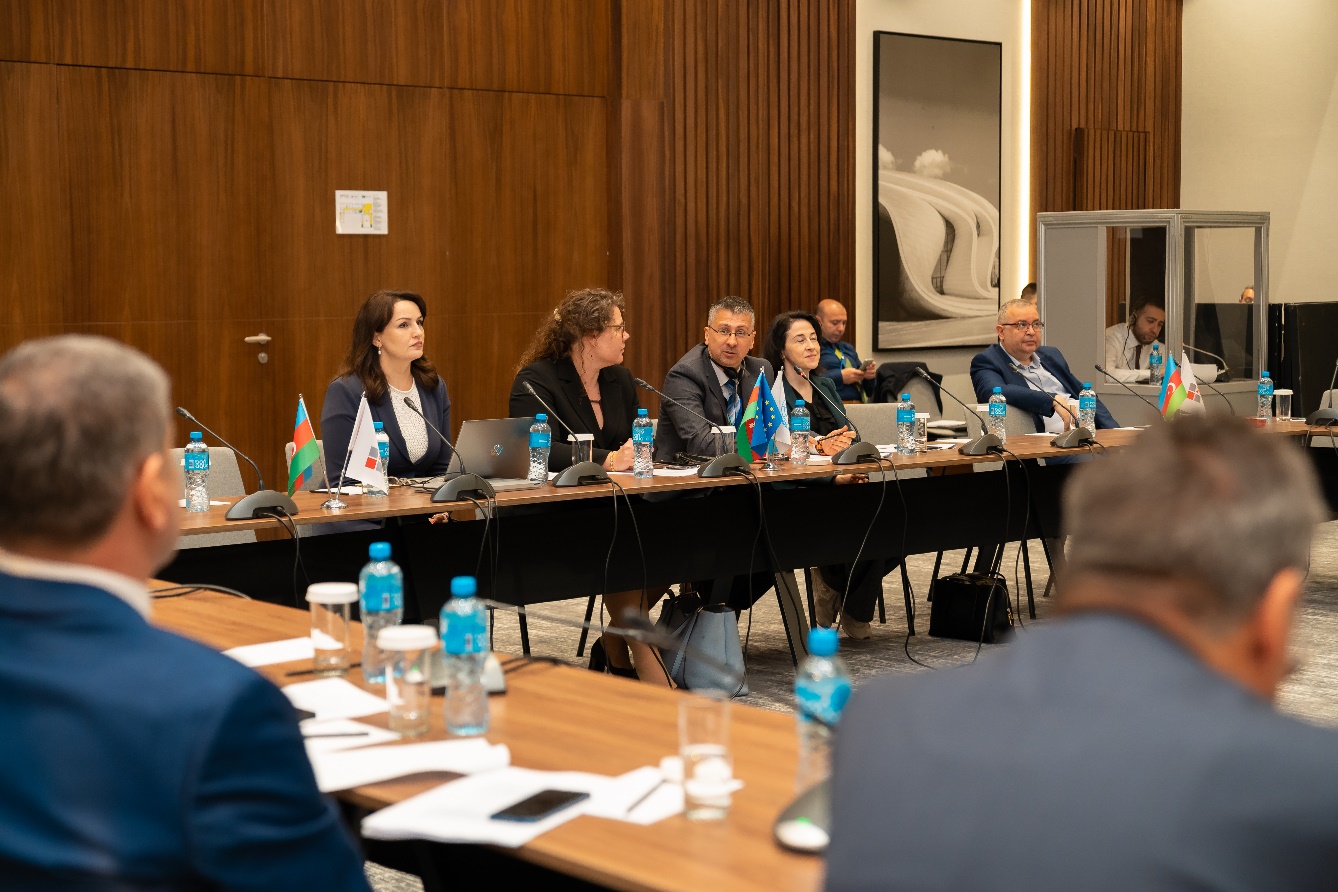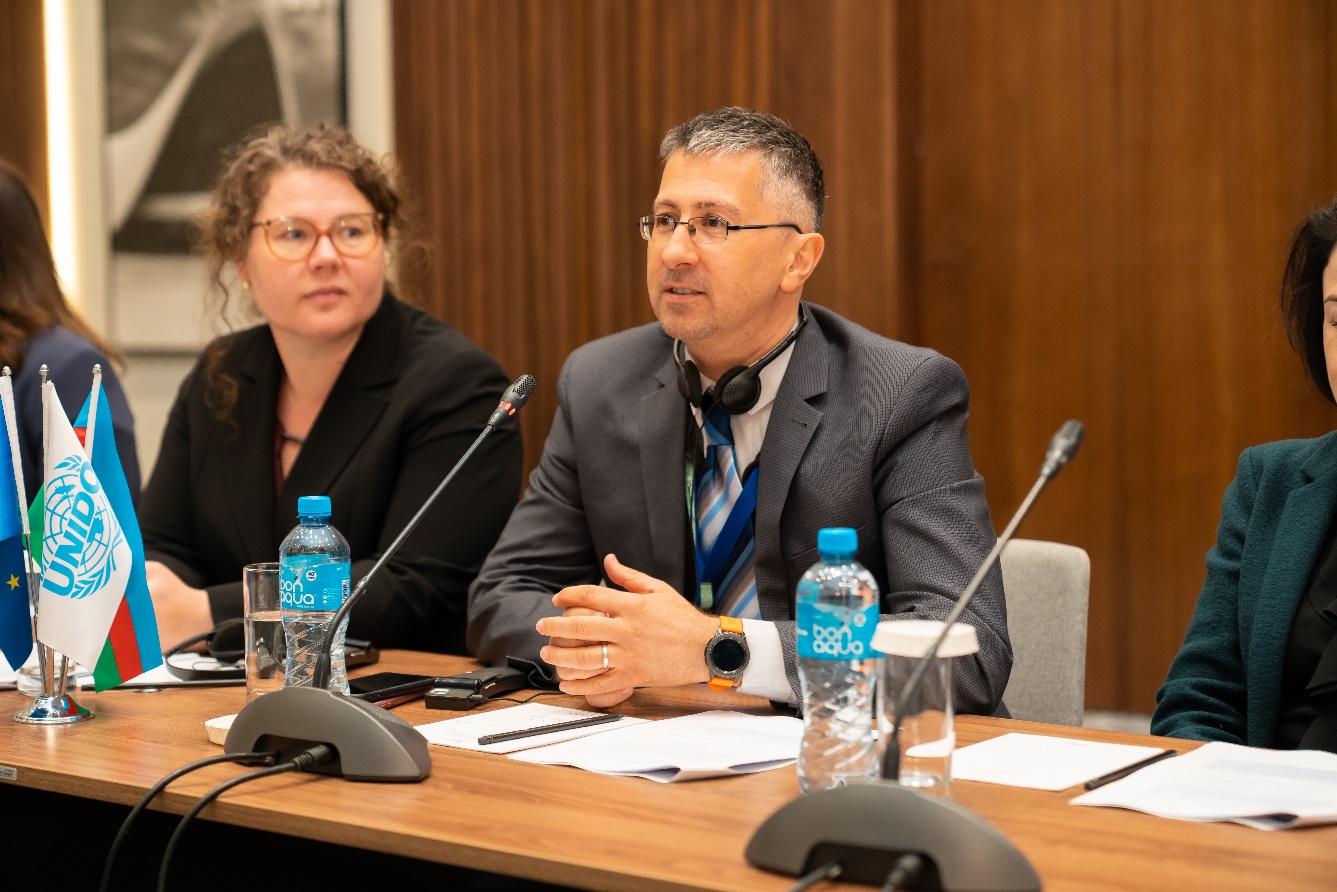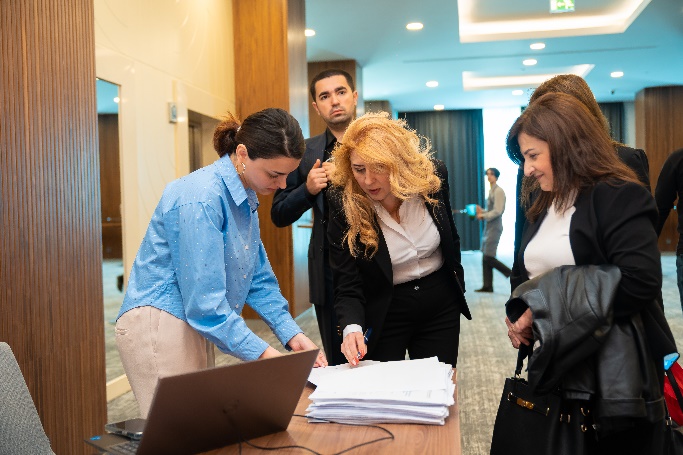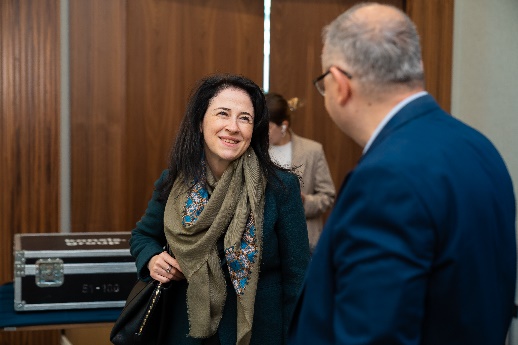Since 2021, through the EU4Environment programme, UNIDO, NFPs and the ACE Group Consultants with support of ACE Energy Experts UK Ltd have been supporting Azerbaijani enterprises by promoting RECP as part of its transition to a circular economy. This approach has already brought tangible benefits to 35 businesses, with a particular focus on Small and Medium-Sized Enterprises (SMEs), including waste reduction, improved energy and water use, and long-term cost savings.
The final national conference aimed to highlight and promote resilience and green growth in Azerbaijani enterprises by showcasing the benefits of Resource Efficient and Cleaner Production (RECP) in the transition to a Circular Economy. Additionally, the event will provide an opportunity to discuss and share experiences, tools, and programmes on greening Azerbaijani Small and Medium Sized Enterprises (SMEs) through six sessions. Aenda is available from: https://drive.google.com/drive/folders/1zi_2TCHvJKc3Z5AQ5nzzewpYwkDgPBc0?usp=drive_link
The conference highlighted achievements and lessons learned from the conducted country’s RECP initiatives. A number of pilot national enterprises demonstrated the benefits and tangible results in lowering resources use, financial costs and environmental impact in their production while improving their competitive advantages.
“This conference is very timely. It takes place as Azerbaijan is getting ready to host COP29 in November. Enhancing circular economy in Azerbaijan is a key part of that effort. Energy efficiency, sustainable agriculture, water management, etc. are all an integral part of EU-Azerbaijan cooperation,” underlined Mr. Viktor Bojkov, Head of Cooperation Delegation of the European Union to the Republic of Azerbaijan. He also added: “Enhancing circular economy is directly related to the overall objectives of the EU Green Deal, and the implementation of the European Commission’s March 2020 Circular Economy Action Plan. It also contributes to the attainment of the EU 2050 climate neutrality target.”
Implementation of RECP practices focuses on maximizing returns through smarter resource use while prioritizing the environment. Therefore, it’s not only essential for economic growth but also an important enabler for industries to increase their competitiveness, create jobs, and stimulate innovation. “Circular economy transforms inputs into products that remain in use as long as possible, minimizing waste and repurposing it as inputs for other economic activities. While collaborating with Azerbaijani businesses, our goal is to assess their business models, enabling them to understand their impact and assisting them in minimizing any negative effects of their economic activities on environment,” highlighted Ms. Tatiana Chernyavskaya, Project Manager, UNIDO.
“When we started this project 3 years ago, despite the difficulties ahead, thanks to the support of state authorities and the interest of manufacturing companies, we achieved significant success by crossing a great path of development. RECP in-plant-assessments were conducted in a large number of enterprises, significant savings were achieved thanks to useful recommendations, two RECP Clubs were formed that aligned production enterprises in the regions, cooperation was established with profile organizations operating in the country. The contribution of the successes and achievements of this project to the steps taken by our country towards green development is commendable and can be shown as a success story to stakeholders at the prestigious COP29 event to be held in our country this year. We express our deep gratitude to the Ministry of Ecology and Natural Resources, KOBIA under the Ministry of Economy, international organizations, representatives of the demonstration companies participating in the project, and experts, who walked with us for 3 years,” said Asya Chalabova, Director of ACE Energy Experts UK Ltd, CEO of ACE Group Consultants, the National Implementing Partner of UNIDO in Azerbaijan.
As part of the discussion on the transition to a circular economy in Azerbaijan, the participants were familiarized with the concept of Industrial Waste Mapping (IWM), including the presentation of successful pilot projects conducted in two regions (the Baku and Absheron-Khizi). An efficient waste management system can increase business value for any manufacturing enterprise and contribute to the sustainability of industries. During the discussion the Eco-Industrial Parks (EIPs) methodology was presented to the attendees with focus on creating a more sustainable operating environment for enterprises, promoting competitiveness and jobs creation.
The national event facilitated the discussion on the prospects of greening SMEs through a number of initiatives and methodologies, enhanced knowledge sharing, fostered industrial synergies, and advanced opportunities for future collaboration.
The conference gathered over 60 participants from the government, businesses, Non-Governmental Organizations (NGOs), industry experts, academia, and international organizations.


